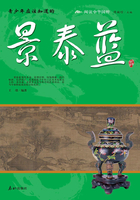These words are meant to impeach the entire English psychology derived from Locke and Hume, and the entire German psychology derived from Herbart, so far as they both treat 'ideas' as separate subjective entities that come and go.Examples will soon make the matter clearer.Meanwhile our psychologic insight is vitiated by still other snares.
'The Psychologist's Fallacy.' The great snare of the psychologist is the confusion of his own standpoint with that of the mental fact about which he is making his report.I shall hereafter call this the 'psychologist's fallacy' par excellence.For some of the mischief, here too, language is to blame.The psychologist, as we remarked above (p.183), stands outside of the mental state he speaks of.Both itself and its object are objects for him.Now when it is a cognitive state (percept, thought, concept, etc.), he ordinarily has no other way of naming it than as the thought, percept, etc., of that object.He himself, meanwhile, knowing the self-same object in his way, gets easily led to suppose that the thought, which is of it, knows it in the same way in which he knows it, although this is often very far from being the case. The most fictitious puzzles have been introduced into our science by this means.The so-called question of presentative or representative perception, of whether an object is present to the thought that thinks it by a counterfeit image of itself, or directly and without any intervening image at all ; the question of nominalism and conceptualism, of the shape in which things are present when only a general notion of them is before the mind ; are comparatively easy questions when once the psychologist's fallacy is eliminated from their treatment, - as we shall ere long see (in Chapter XII).
Another variety of the psychologist' fallacy is the assumption that the mental state studied must be conscious of itself as the psychologist is conscious of it.The mental state is aware of itself only from within ; it grasps what we call its own content, and nothing more.The psychologist, on the contrary, is aware of it from without, and knows its relations with all sorts of other things.What the thought sees is only its own object ; what the psychologist sees is the thought's object, plus the thought itself, plus possibly all the rest of the world.We must be very careful therefore, in discussing a state of mind from the psychologist's point of view, to avoid foisting into its own ken matters that are only there for ours.We must avoid substituting what we know the consciousness is , for what it is a consciousness of , and counting its outward, and so to speak physical, relations with other facts of the world, in among the objects of which we set it down as aware.Crude as such a confusion of standpoints seems to be when abstractly stated, it is nevertheless a snare into which no psychologist has kept himself at all times from falling, and which forms almost the entire stock-in-trade of certain schools.We cannot be too watchful against its subtly corrupting influence.
Summary.To sum up the chapter, Psychology assumes that thoughts successively occur, and that they know objects in a world which the psychologist also knows.These thoughts are the subjective data of which he treats, and their relations to their objects, to the brain, and to the rest of the world constitute the subject-matter of psychologic science.Its methods are introspection, experimentation, and comparison.But introspection is no sure guide to truths about our mental states ; and in particular the poverty of the psychological vocabu. lary leads us to drop out certain states from our consideration, and to treat others as if they knew themselves and their objects as the psychologist knows both, which is a disastrous fallacy in the science.
Footnotes On the relation between Psychology and General Philosophy, see G.C.Robertson, 'Mind,' vol.VIII.p.1, and J.Ward, ibid.p.153 ; J.Dewey, ibid.vol.IX.p.1.
Compare some remarks in Mill's Logic, bk.I.chap.
III.§§ 2, 3.
Logic, § 40.
Psychologie, bk.II.chap.III.§§ 1, 2.
Cours de Philosophie Positive, I.34-8.
Auguste Comte and Positivism, 3d edition (1882), p.64.
Wundt says: "The first rule for utilizing inward observation consists in taking, as far as possible, experiences that are accidental, unexpected, and not intentionally brought about....First it is best as far as possible to rely on Memory and not on immediate Apprehension....Second , internal observation is better fitted to grasp clearly conscious states, especially voluntary mental acts: such inner processes as are obscurely conscious and involuntary will almost entirely elude it, because the effort to observe interferes with them, and because they seldom abide in memory." (Logik, II.432.)
In cases like this, where the state outlasts the act of naming it, exists before it, and recurs when it is past, we probably run little practical risk of error when we talk as if the state knew itself.
The state of feeling and the state of naming the feeling are continuous, and the infallibility of such prompt introspective judgments is probably great.But even here the certainty of our knowledge ought not to be argued on the a priori ground that percipi and esse are in psychology the same.The states are really two ; the naming state and the named state are apart ; percipi is esse' is not the principle that applies.
J.Mohr : Grundlage der Empirischen Psychologie (Leipzig, 1882), p.47.
In English we have not even the generic distinction between the-thing-thought-of and the-thought-thinking-it, which in German is expressed by the opposition between Gedachtes and Gedanke , in Latin by that between cogitatum and cogitatio.
Compare B.P.Bowne's Metaphysics (1882), p.408.















